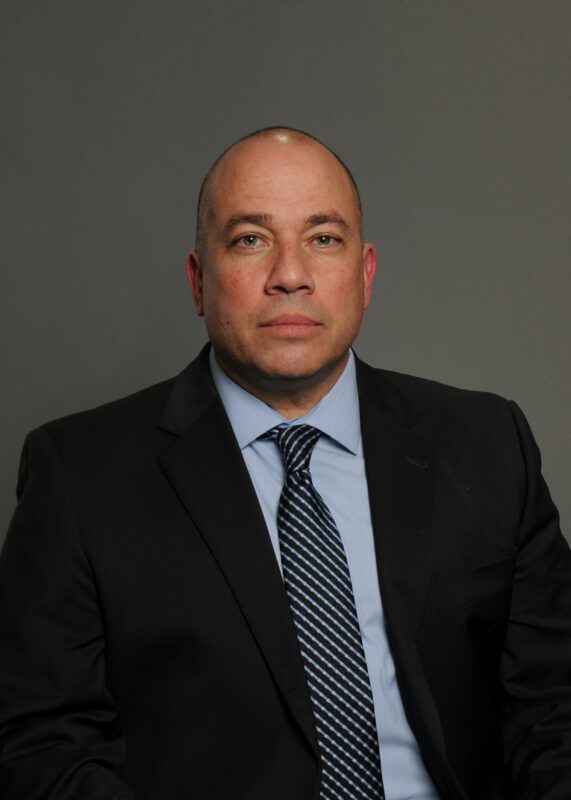
The finalists for WashingtonExec’s Pinnacle Awards were announced Oct. 8, and we’ll be highlighting some of them until the event takes place virtually Nov. 12.
Next up is Business Development Executive of the Year finalist Michael Breslin, who’s strategic client relations director of federal law enforcement at LexisNexis Risk Solutions. Here, he talks pride in his organization, future focus areas and career advice.
What has made you successful in your current role?
I approach my role at LexisNexis Lexis Risk Solutions in the same way I did during my 24-year career with the United States Secret Service. I listen, learn and surround myself with good and talented people. I am authentic, hold myself to the highest standards and clearly communicate so that in the spirit of collaboration end goals are achieved and surpassed.
What are you most proud of having been a part of in your current organization?
I am extremely proud of the long history, entrenched relationships and support LexisNexis Risk Solutions provides to the law enforcement community at the federal, state, local and tribal levels. These agencies and organizations are filled with professionals who work tirelessly to contribute daily to securing our homeland, protecting its people and catching criminal actors.
I am most proud of the work that LexisNexis Risk Solutions does in support of the mission of the National Center for Missing and Exploited Children, the nation’s clearinghouse and comprehensive reporting center for all issues related to the prevention of and recovery from child victimization. LexisNexis Risk Solutions developed and supports the ADAM program, which geographically targets and distributes posters of missing children helping recover 186 missing children.
There is no greater joy for me to know that I work in an organization that willingly uses its resources, vast data and linking technology to help solve cold cases involving the murder and abuse of children.
What’s one key thing you learned from a failure you had?
It is easier to remain in your comfort zone to avoid failure and second guessing yourself. Today’s world is extremely complex, but failure taught me to simplify these complex problems and think long term. The occasional inability to meet your target is the cost of doing business and drives you to aim higher. Strategy is a path and not a fixed point, it is dynamic, and failure is but one stop along this path.
Looking back at your career, what are you most proud of?
Looking back at my three-decade-plus career in the not-for-profit, federal government and now private sector, I am most proud of the friendships made. I have shared my career with so many dedicated and fine people and have accumulated a collection of amazing, and at times, unbelievable stories and unforgettable memories.
What are your primary focuses areas going forward, and why are those so important to the future of the nation?
I am focused on driving the expansion of executive relationships and new solutions designed to meet the evolving needs of law enforcement and public safety agencies throughout our nation as they seek more effective and cost-saving ways to root out fraud, protect the country, safeguard its people and help government become more efficient.
I will continue to seek innovative ways to bring government and private sector decision-makers together to discuss current gaps and future trends in major event security, business vetting, cybercrime, money laundering, dark web and other investigations. I want to put the right people together to make sure that the law enforcement solution successfully addresses three important questions : Can the problem be seen differently? What are we missing? What is it we are not seeing?
What was a turning point or inflection point in your career?
The most impactful inflection point in my career was when I decided to retire from the Secret Service, a job that I loved and viewed more as a lifestyle that I was honored to espouse. After careful deliberation with the counsel of trusted friends, I made a leap of faith and ventured into something outside my comfort zone — a position at LexisNexis Risk Solutions.
Although the decision was a tough one, it was based on the wellbeing of my family. It was the right decision because the culture and mission of the company was a long-term fit.
What was your biggest career struggle and how did you overcome it?
I have overcome challenges of hostile environments, diminished resources, lack of personnel and competing interests by attempting to understand the nuances involved. Being comfortable in the gray area and developing the intellectual agility needed to adapt and find new ways of achieving common goals is hard work and takes time. The hallmark of any successful career and overcoming of professional challenges is based on teambuilding and teamwork.
What’s your best career advice for those who want to follow in your footsteps?
If you want to make the transition from the government to the public sector, be honest with yourself and assess your needs, wants and skill sets. Someone at the crossroads of transitioning should understand the organization they want to join, know their mission and stakeholders, understand your constraints and assess your ability to thrive in a new culture.

